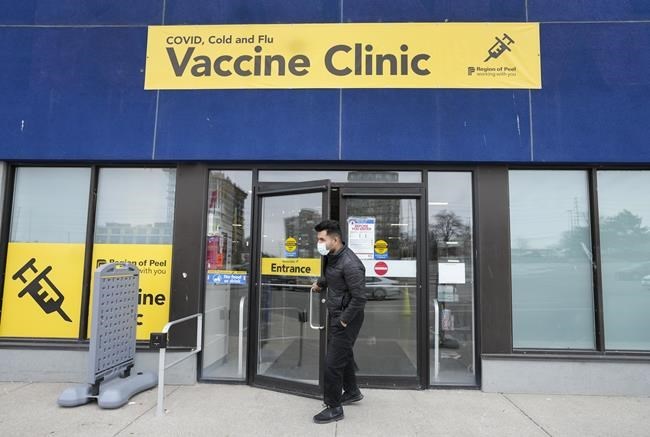Doctors say influenza spread is starting to hit older adults as surveillance levels indicate the hospitalization rate of seniors is not that far behind that of children.
Data from the Public Health Agency of Canada for the week ending Nov. 26 show that children under five still made up the highest number of hospitalized flu patients, but the rate at which people 65 years of age and older are hospitalized is also rising.
Hospitalizations among both young children and seniors have increased sharply over recent weeks during a flu season that started earlier than usual.
Infectious diseases specialist Dr. Isaac Bogoch said he's already seeing more seniors with flu as in-patients at Toronto General Hospital.
”We have, you know, a bit of a perfect storm with a monster influenza season that started early and rose quickly. We have subpar influenza vaccine uptake. And we have a health care system that is completely stretched,” Bogoch said.
Not all provinces report vaccine uptake before the season is over. Alberta is among the provinces that does — it says so far this season 22.5 per cent of Albertans have received an influenza vaccine, which is about the same uptake as this time last year.
Nationally, the Public Health Agency of Canada says uptake has been around 40 per cent for adults over the last two years.
Flu infections among adults will likely continue to rise, Bogoch said, noting that the influenza season normally peaks sometime in January, with cases dropping off through February and then petering out in the late winter.
"We're already in a tough flu season and we probably have several more months of this to go.”
In most years, children tend to get the flu first and then bring it home to parents and grandparents, said Dr. Matthew Oughton, an infectious diseases specialist at Jewish General Hospital in Montreal.
Quebec hospitals are "on the cusp" of seeing that impact, Oughton said.
A rise in adult cases overlapping with the surge in pediatric cases could add more pressure on a health-care system that is already dealing with staff shortages heading into the holiday season, he said.
Doctors are urging people to get the flu shot, noting it takes two weeks to take effect.
"We really are barrelling into that flu season right now and we need the protection from vaccines," Oughton said.
"This is the time to get that done now."
Dr. Samir Sinha, director of geriatrics at Sinai Health and University Health Network in Toronto, said public health officials in Canada should have made an earlier push for people to get vaccinated against the illness.
Data coming out of Australia, where the flu season typically runs from May to October, showed a reason for officials here to be concerned, he noted.
"The reality is that I don't think our public health response has been as robust as it should have been, in terms of really making it clear that if anything, with what we've seen in Australia, we're going to be in for a rough season ahead."
The National Advisory Committee on Immunization's guide for this flu season said the influenza vaccine could be administered at the same time as a COVID-19 vaccine for people aged five and older.
While that addressed earlier questions around whether there should be a 14-day wait between the two vaccines, Sinha said the guidance from NACI was not adequately conveyed to the public.
"I don't think that really translated into a coherent set of actions, really making sure that there was good public awareness that these are the two vaccines that are available."
That would alleviate the top reason for people not getting more than one vaccine — inconvenience, said Sinha, who is also director of health policy research at Toronto Metropolitan University's National Institute on Ageing.
Manitoba is an example of a jurisdiction that provided some "winter wellness" information about the upcoming respiratory season and the need for people aged 65 and older to get the pneumococcal and influenza vaccines, and that they could be given together with the COVID-19 vaccine, he said.
However, there have been some "hassles" with people still having to get their flu and COVID-19 vaccines separately, Sinha said.
"My parents are both older adults living in Winnipeg. I was frustrated because when they went to go get their COVID-19 boosters this fall they weren't given an opportunity to have their vaccines co-administered. My dad had to go to a pharmacy to get his influenza vaccine. And then my mom waited to go see her family doctor."
The Public Health Agency of Canada says influenza causes an estimated 3,500 deaths every year.
"Together with pneumonia, influenza currently ranks as the eighth leading cause of death in Canada, and before the COVID-19 pandemic, it was Canada’s leading vaccine-preventable cause of death," it says in its FluWatch report.
This report by The Canadian Press was first published Dec. 6, 2022.
This report has been produced with the financial assistance of the Canadian Medical Association. It has no say in editorial choices.
Nicole Ireland and Camille Bains, The Canadian Press



